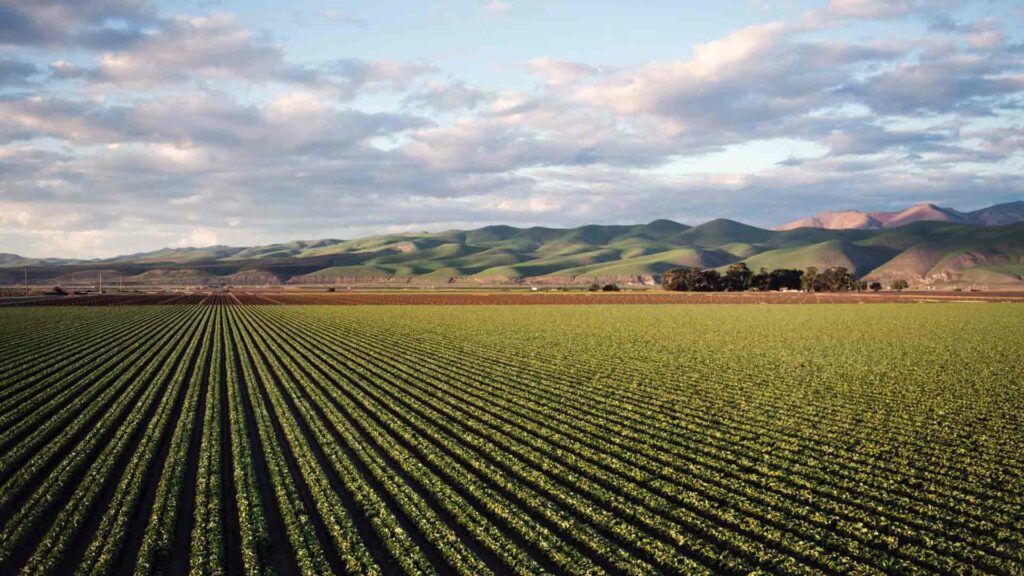|
Getting your Trinity Audio player ready...
|
Starting a farm business is more than just having the skills and passion to cultivate crops or rare animals. It requires patience, applied skills, product knowledge, and above all, proper funding.
This article will help you know everything about starting a farm business from food crops to livestock specifically targeted at beginners.
Register your business.
Table of Contents
Pros to starting a farm business
Cons to starting a farm business
2. Learn everything about your product
5. Choose a business structure
8. Licensing for Farm Business
9. Learn about the different tax rates and programs
10. Secure funding for your business
(adsbygoogle = window.adsbygoogle || []).push({});
Pros to Starting a Farm Business
For any type of farming business you start, there will always be demand, especially for food. Farming is one of the foundations of any economy and consumer market. Though essential, the farming market (like any other) has competition.
If your pricing is in line with the market, you stand a chance in the market. Research and planning are necessary to ensure that the business turns a healthy profit.
The beautiful thing about farming is the opportunity for diversifying your product. Diversifying your product common practice in farming. One way to diversify is by planting more than one type of crop. One way is by combining two or more types of farming products.
For example, if you do pig farming, you can also grow and sell your feed, or even open a bed and breakfast for guests.
In Botswana, there are some financing options available for new and established farmers. Some facilities are partial grants and others are loans and full grants. Crop and livestock farming seem to attract government and private funding options.
Cons to Starting a Farm Business
Every new business has its challenges and drawbacks. If you are new to the farming industry you may find the initial steps overwhelming, but it is all part of the process. Farming requires a considerable amount of work and research to get going, especially for entrepreneurs with no previous farming experience.
One of the biggest concerns in farming is the weather. Botswana is a country that is 70% desert. So in Botswana, a dry winter season can mean dry spring soil. Hot summers can bring the risk of burnt crops and drought. Also, like in other parts of the world, pests, and diseases are a threat.
Depending on the type of farming business you want to start, the startup costs could be high. Getting the best resource mix for your farm business is very important. Building a proper business plan can help you determine the needed capital and get a clear picture of how to best set your business up for success.
Usually, farming is a labor-intensive business. So starting a farm may also mean hiring temporary workers right from the beginning. Even if you are starting small, and even if you’re physically capable, there are some things that you just can’t do alone. When planning for your business consider hiring costs when creating a financial plan.
Register your business.
11 steps to Starting a Farm Business
Now that you have a basic understanding of the kind of work involved in farming, as well as the pros and cons, here are twelve steps to starting your farm.
1. Choose What to Produce
What do you want to farm? Is it dairy and livestock? Or crops and vegetables? Here are some types of farms that you might consider.
Produce farm: A produce farm is a farm that grows farm-produced crops, like fruits, vegetables, and herbs, for sale at a market.
Produce farms come in various sizes. Some farms are huge and distribute their products to major grocery retailers. Others are small scales farms and mostly sell at local markets and farmers’ markets. Regardless of its size, every type of produce farm must adhere to the regulations related to selling products.
Dairy and livestock: Dairy and livestock farms raise cattle, goats, pigs, or chickens. This type of farm business requires a lot of work and capital to get started and also to maintain operations. In this type of farming regular livestock trade is a norm. Livestock can be acquired by auction, from another farm, or bred on the farm. Depending on the type of farm and the number of livestock, you’ll need a lot of land and equipment.
Another important factor is the running veterinary costs, to keep your livestock healthy.
Fish: This is a farm that breeds fish. Usually, fish farms supply food, such as trout or salmon. But some farms breed exotic fish for aquariums and pet stores. Others can even breed fish for restocking lakes for angling.
Flowers: A flower farm can be any size you want. You can start a micro-farm and keep it as small as a patch of flowers in your backyard property. You can then sell the flowers at farmers’ markets. Some flower farmers focus on growing flowers for seed production only and target seed retailers or local markets.
Agrotourism: Agrotourism is a fusion of agriculture and tourism. This is farming for tourism and primary farm production. The farm is an educational platform about the local culture and farming practices for profit. Activities of Agrotourism may include taking part in growing, harvesting, and processing food crops on farms.
Usually, farmers provide homestay experiences and education on farm life. Agro-tourism activities may also include farm tours, farm stays with bed and breakfast, tractor or bullock cart rides, donkey riding, horse riding, fishing, milking, Ostrich riding, Peacock viewing, and other farming activities in the area.
2. Learn everything about your product
Once you’ve decided on the type of farming you want to do, you need to do some research. Learn everything you can about that product. You can also try job shadowing a seasoned farmer to learn what it takes to be a farmer. Network and talk to other farmers, and ask as many questions about that product’s market. This way you are going in with an informed expectation.
Register your business.
3. Choose a Business Name
Before you register or incorporate your farm business, you’ll need to choose a suitable business name. Your business name can either reduce or grow your marketing costs going forward, so it is worth the time and effort you invest in it at the beginning.
As you search for a business name, Google your potential name to see if it is not being used by another business. Also, conduct a domain search to ensure it is available. Even if you have registered your business name with your local government authority, it doesn’t mean you have legal protection for the domain name on the web. The name you choose needs to make it simple for a person to understand what you do, which industry you are in, and be able to easily remember it.
Next, you should search your potential business name on the CIPA database of incorporated businesses in Botswana, or whichever is relevant to your country or region.
4. Plan your Farm Business
A business plan provides you with a roadmap for your farm business. It is a drawing board to test your ideas and develop the best way forward given your geography. So, you must invest time or resources in this step. If you’re not sure where to start or are feeling overwhelmed, engage an agency like ours to get the best out of the process.
The business plan process will help you see your strengths and weaknesses. With a clear picture will also be able to allocate financial resources and time in the right places. With a well-articulated plan, you will be able to secure funding from a bank, investors, or government available program. It often takes one to two years for many businesses to turn a profit.
Beware of rookie mistakes that may lead you to feel there’s no need to develop a business plan. Even if you are established in your field, with an extensive network of potential clients, you need to develop a plan. This step is invaluable for any business, more seasoned business people tend to treat businesses like projects. So do not wing it, plan your success.
In summary, a business plan will help identify new or niche opportunities, define growth goals, or find alignment with clients who have similar values. Uncovering these will pay dividends to your bottom line and save you a lot of time in the future.
Bear in mind your business plan is not set in stone, it is a starting point. As you gather experience in the market your business may evolve or you may discover new opportunities, so aim for a solid plan, not a perfect one.
Register your business.
5. Choose a Business Structure
What type of business structure do you want for your farm business? Do you want it to be a sole proprietorship, a partnership, or a corporation (LLC or corporation)? The main difference between these business structures is whether they have limited liability and how tax is structured.
The sole proprietorship structure makes you personally responsible for all financial obligations of the business, including debts and losses. A corporation is a legal entity with limited liability, thus as a business owner, you are protected from business debt.
A corporation benefits from low lower tax structure and exemptions compared to sole proprietors. If you choose a sole proprietor structure, you’ll be subject to higher personal income tax structures. Each business structure has its pros and cons, thus you will have to weigh them and choose the one that positions best you for success.
6. Register Your Farm
Registering your farm is a wise decision because with it comes several benefits. It helps with income tax structure, positions your business to secure funding, and it is a signal of professionalism in your approach to potential investors.
How you register your farm will depend on the business structure you’ve chosen. That’s where we at The Brand Business can help you start and grow your business.
Register your business.
7. Find the Land
If you don’t already have access to land, at this point you will have to get on the hunt to find land. Also, this is dependent on the type and scale of farming you want to do. If for example, you want to start your flower micro-farm then your backyard will do as a start. You will also need to verify if there are any land zoning exceptions from your local government or municipality.
8. Licensing for Farm Business
Specific industry licenses and permits are required for many types of businesses. In Botswana, the ministry of agriculture has outlined farming guidelines.
Keep in mind there may be occasions when additional permits are required. For example, those who want to farm or breed guinea fowl need to apply for a guinea fowl farming permit.
Farming has industry unique risks like hail, windstorms, fire, and lightning. That is why some brokers offer crop insurance. You will need to consider the relevant insurance for your type of farm business.
Insurance for your business can protect your corporation from liability and overwhelming losses. The best thing is to get guidance from an experienced commercial insurance broker who can show you the appropriate coverage.
Did you know you can appoint us as your company secretary or let us help you with the whole process?
9. Learn about the Different Tax Rates and Programs
A farm business comes with financial responsibilities, you need to be aware of the tax rates which affect your business.
In Botswana, The agriculture tax is a flat rate tax at 22%. Depending on your country and region, you may have variable taxes for a type of farming industry.
10. Secure Funding for Your Business
There are many ways to fund a business, this could be from savings, grants, or financial facilities available in your state, or country. Here are some of the places you can find funding in Botswana:
Youth Development Fund
Youth Development Fund (YDF) is a socio-economic program for start-ups and expanding businesses. The YDF is set up for youth to venture into various economic enterprises including farming, which is funded at 50% loan and 50% grant.
The National Development Bank
The National Development Bank (NDB) is a government parastatal that offers commercial farm funding. The agriculture loan provides financing for crop and animal production projects within Botswana. NDB offers insurance for Dryland crop production projects (Agricultural Credit Guarantee Scheme).
Their loans range from P20,000 to P60 million, and generally have flexible repayment periods of up to 12 years.
Citizen Entrepreneurial Development Agency
Citizen Entrepreneurial Development Agency (CEDA) provides financial and technical support for business development. CEDA provides subsidized loans in the agriculture industry. They have low-interest rates to promote local business. The CEDA Agribusiness facility has two types of farming loan schemes; Agribusiness Mainline Funding and Young Farmers Fund.
Applicants are also eligible for loans up to P30 million.
Private Banks Funding
The Private bank market offers agribusiness funding as well. These banks offer insurance offers tailored for farming.
Angel Investors Funding
Angel investors usually provide funding (and in some cases mentorship) for a percentage stake in your company. An angel helps a business get started or commits to ongoing support. Angel investors are also referred to as private investors, seed investors, or angel funders.
11. Build your brand presence
At this point, your business is ready to launch, so it’s time to get the word out and build your customer base. It is time to approach your grocery stores and local government and drum up some business.
Networking and joining local farming forums are great ways to meet experienced farmers. Other areas to network in on social media groups like Facebook and Reddit.
It is important to build a marketing strategy that will open doors and present your brand as professional.
One of the fastest ways to grow your brand or business is with digital marketing. In business-to-business sectors (like agriculture and farming) 67% of purchases for multiple industrial manufacturing and industrial businesses are influenced by digital.
Register your business.
If you’re ready to take the plunge and start a farm business, The Brand Business can help you to take the next step.
Do you need help with starting or growing your next business in Botswana? Starting a business in an emerging market can be exciting. Looking for information, and knowing where to start can be a challenge. We understand that.
We empower you with the tools needed to start, grow and lead in the Botswana market. Email us at email us or contact us.







